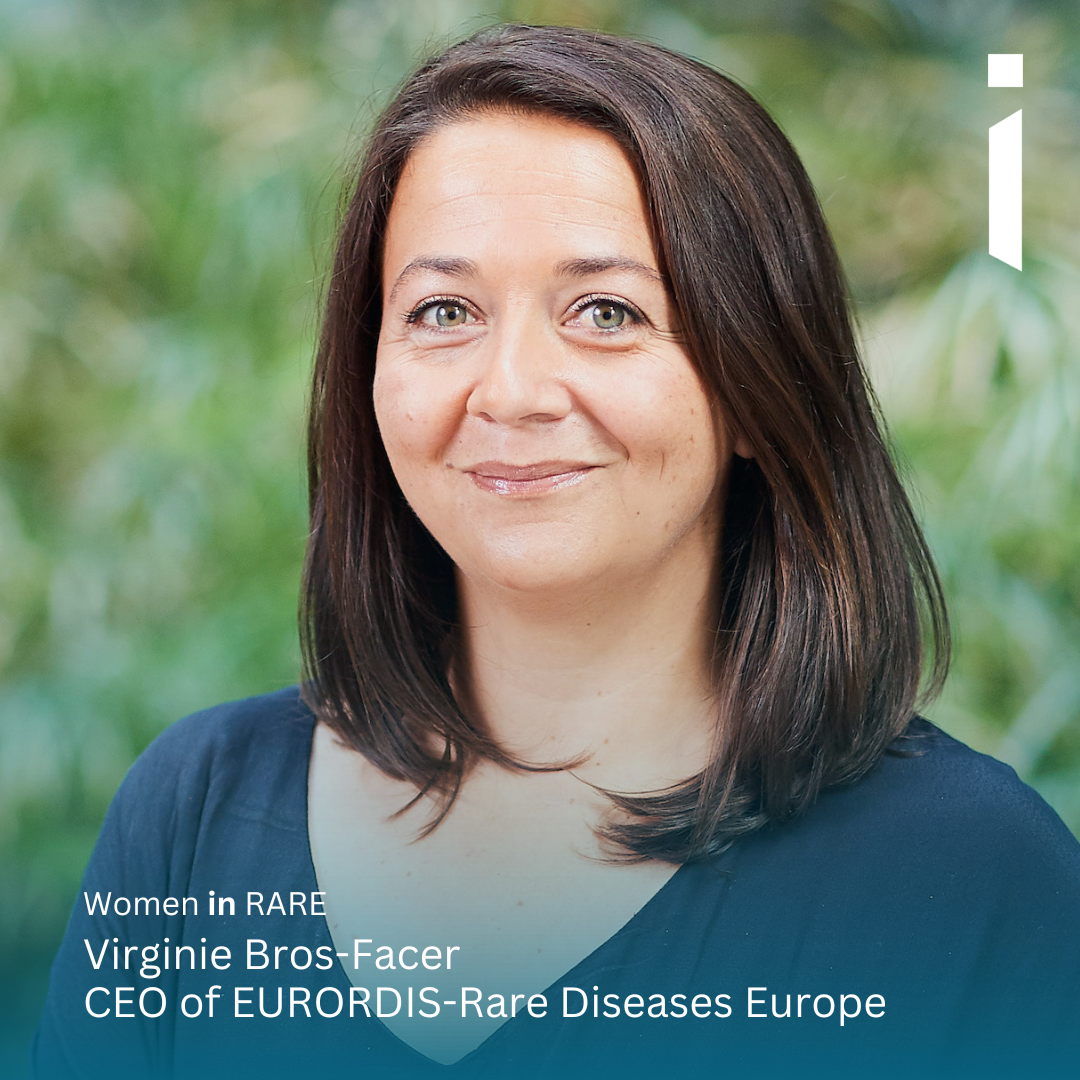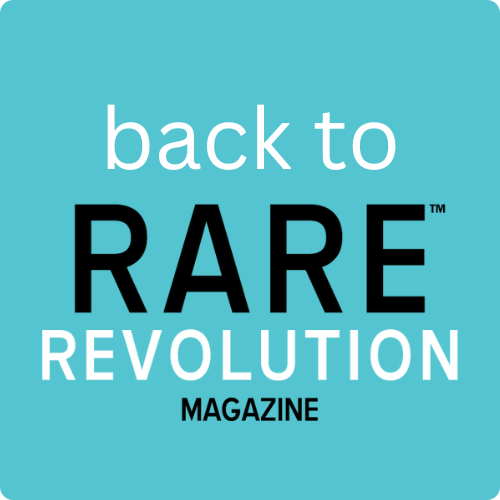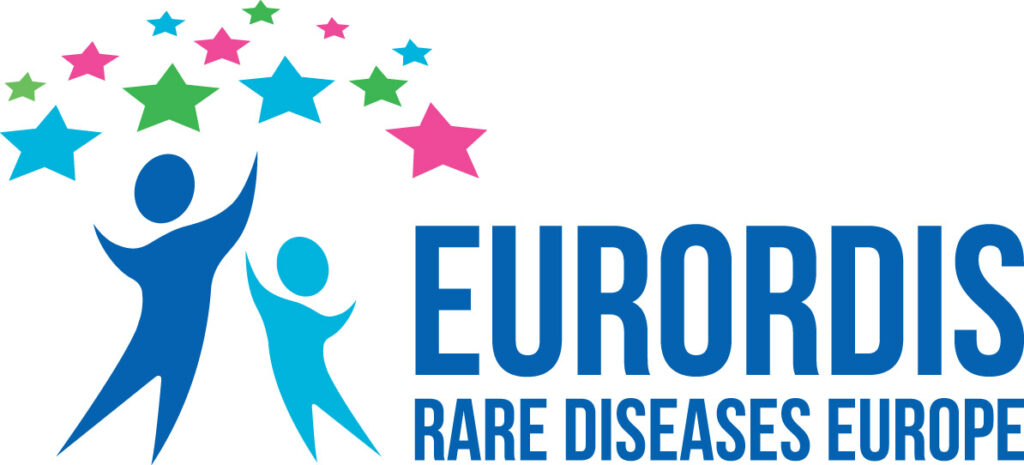Virginie Bros-Facer of EURORDIS – Rare Diseases Europe
Estimated reading time: 6 minutes

“I’ve always wanted to make a difference for people who are often overlooked—and in the world of rare diseases, that sense of urgency and purpose is very real.”
I started out as a molecular research scientist in the UK, with a Master’s and PhD in neuroscience from King’s College London. My postdoc at the Institute of Neurology at UCL (University College London) focused on ALS and rare neuromuscular diseases, looking at potential therapeutic strategies. From there, I moved into research funding roles with NIHR (National Institute for Health and Care Research) and MRC (Medical Research Council), and later became medical director for a paediatric rare disease research charity.
In 2015, I came back to France to join EURORDIS, first as a project manager, then as scientific director. After a couple of years in medical affairs at Illumina, I returned to EURORDIS as CEO in March 2024.
Throughout, I’ve stayed committed to pushing research and advocacy forward in the rare disease space—something that’s deeply personal to me, both through family experience and from working closely with this incredible community.
What motivated you into your chosen career path?
I’ve always wanted to make a difference for people who are often overlooked—and in the world of rare diseases, that sense of urgency and purpose is very real. I didn’t take the typical route in science. Instead, I was drawn to the challenge and potential of applying research to rare conditions.
Working on Huntington’s for my Master’s, and juvenile ALS for my PhD, really cemented that focus. But what changed everything was when my niece went through a long and difficult diagnostic journey after developing epilepsy and developmental delays. That led me to join Sparks, a charity supporting research into rare paediatric diseases which later became part of GOSH (Great Ormond Street Hospital) Charity.
From then on, it became clear that I wanted to work at the intersection of science and advocacy. It’s where I feel I can really contribute—using my background to help bring attention, resources and change to people who need it most.
What do you see as some of the opportunities as a woman in your field?
One thing I’ve observed is that the rare disease field truly values empathy, perseverance and collaboration—and these are qualities that women are often more inclined to bring in a particularly powerful way. In my own experience, being a woman has helped me build strong, trusting relationships with patients, policymakers and professionals across different sectors.
There’s also growing recognition of women’s leadership in both healthcare and advocacy. This field offers meaningful opportunities for women to lead transformative work that tackles systemic inequalities in access to care and treatment. Women are also well placed to shape policies that put patient voices at the heart of decision-making.
Of course, barriers still exist—gender bias, underrepresentation in leadership and structural challenges remain. But the landscape is changing. More women are stepping into visible roles across science, medicine and advocacy, paving the way for others. By continuing to drive patient-centred approaches and policy change—both nationally and internationally—women can help deliver real improvements for people living with rare diseases.
What are some of the barriers to success as a woman in your field?
Although I have been fortunate not to face significant barriers as a woman in this field, challenges do exist for many women pursuing careers in science and advocacy. These include systemic gender biases that can limit access to leadership roles or funding opportunities. Additionally, balancing professional responsibilities with personal commitments can be more challenging for women due to societal expectations.
In the rare disease field specifically, women may encounter hurdles related to underrepresentation in decision-making bodies or difficulty gaining recognition for their contributions.
Advocacy work often requires navigating complex political landscapes where traditional power structures may not always welcome diverse perspectives.
Despite these challenges, progress is being made. Increasingly, women are occupying leadership positions within organisations like EURORDIS and other patient advocacy groups. By fostering inclusive environments that value diverse perspectives, the field can overcome these barriers and ensure that talented individuals—regardless of gender—can contribute meaningfully.
What is one piece of advice you would give your 10-year-old self?
To my 10-year-old self: embrace ambition without fear or shame—it is not only okay but necessary to dream big. Have confidence in your abilities; you are capable of achieving great things even when others doubt you or when challenges seem overwhelming. Trust your instincts and pursue what truly inspires you rather than following conventional paths. Your curiosity and determination will guide you toward meaningful opportunities where you can make a difference.
Can you tell us about your current work priorities and focus or a particular project you are working on?
Right now, my main focus is pushing for a European Action Plan on Rare Diseases. It’s something our community has been calling for over many years—and it’s a call that’s been echoed by policymakers right across the EU (European Union).
The need couldn’t be more urgent. There are still huge gaps across Europe when it comes to getting a diagnosis, accessing treatment and receiving properly coordinated care.
At EURORDIS, we’re working to make sure that any action plan isn’t just a statement of intent. We want it to come with real funding, clear goals and a roadmap that actually drives change. Just as importantly, it needs to be built with patients—not simply designed around them.
That means making sure patient organisations have a real say in setting priorities, identifying what’s needed and assessing what’s actually making a difference.
We’ve been leading on this effort—building on the Rare2030 foresight study, and working hand-in-hand with member states, national alliances, and European institutions. We’re also helping to shape the conversation globally, supporting WHO efforts to develop a similar framework at the international level.
Our vision is simple: we want people living with rare diseases to get a diagnosis sooner, access the care they need without delays, and feel supported every step of the way—including when it comes to their mental health and social wellbeing.
There’s still a long road ahead, but we’re heading in the right direction. The goal is clear: to build systems that work better—for everyone.
Connect with Virginie
Women in RARE is a celebration of women working in the RARE space in science, research, industry and advocacy. To access more Women in RARE articles click below.


